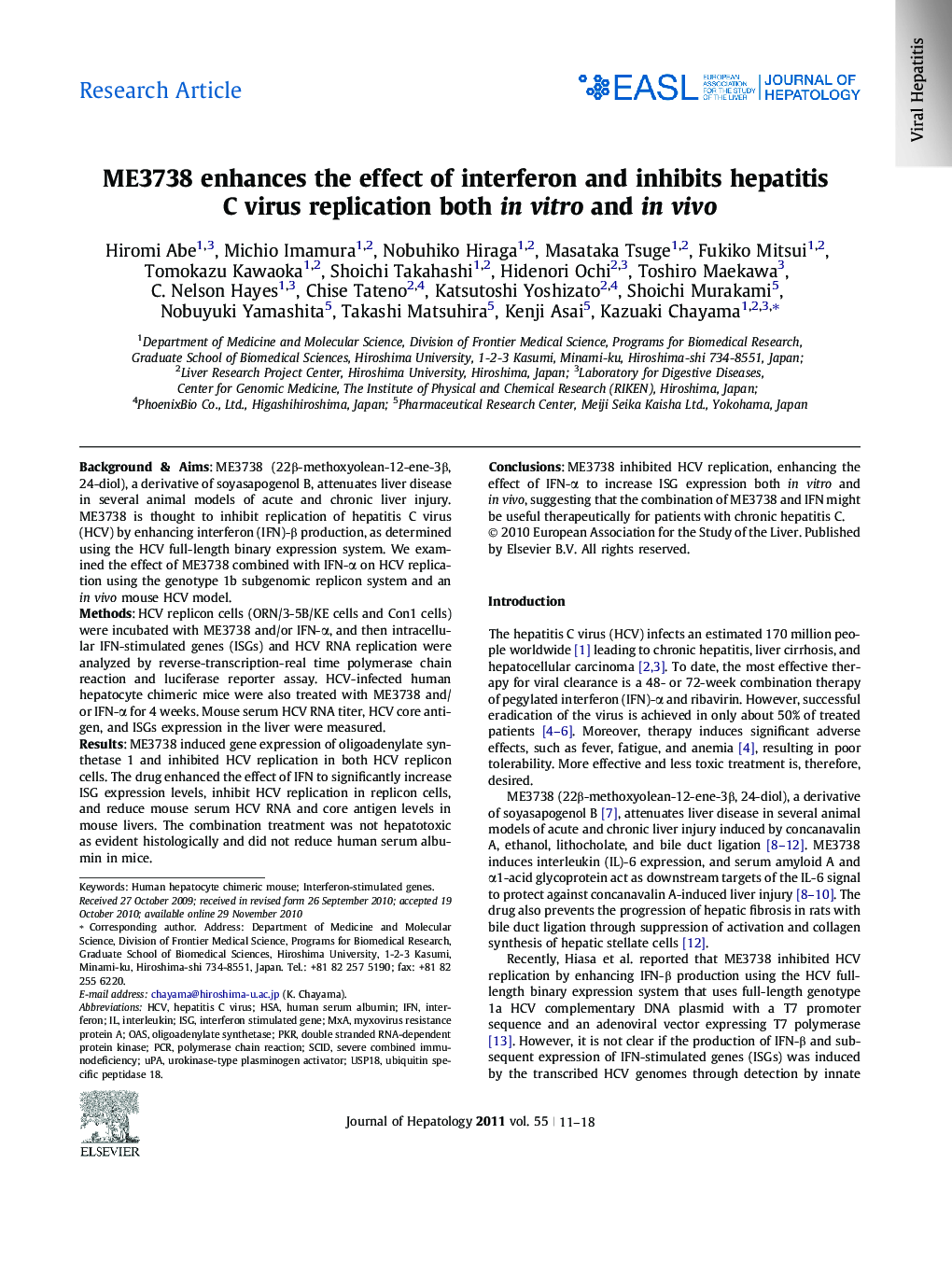| Article ID | Journal | Published Year | Pages | File Type |
|---|---|---|---|---|
| 6108685 | Journal of Hepatology | 2011 | 8 Pages |
Background & AimsME3738 (22β-methoxyolean-12-ene-3β, 24-diol), a derivative of soyasapogenol B, attenuates liver disease in several animal models of acute and chronic liver injury. ME3738 is thought to inhibit replication of hepatitis C virus (HCV) by enhancing interferon (IFN)-β production, as determined using the HCV full-length binary expression system. We examined the effect of ME3738 combined with IFN-α on HCV replication using the genotype 1b subgenomic replicon system and an in vivo mouse HCV model.MethodsHCV replicon cells (ORN/3-5B/KE cells and Con1 cells) were incubated with ME3738 and/or IFN-α, and then intracellular IFN-stimulated genes (ISGs) and HCV RNA replication were analyzed by reverse-transcription-real time polymerase chain reaction and luciferase reporter assay. HCV-infected human hepatocyte chimeric mice were also treated with ME3738 and/or IFN-α for 4 weeks. Mouse serum HCV RNA titer, HCV core antigen, and ISGs expression in the liver were measured.ResultsME3738 induced gene expression of oligoadenylate synthetase 1 and inhibited HCV replication in both HCV replicon cells. The drug enhanced the effect of IFN to significantly increase ISG expression levels, inhibit HCV replication in replicon cells, and reduce mouse serum HCV RNA and core antigen levels in mouse livers. The combination treatment was not hepatotoxic as evident histologically and did not reduce human serum albumin in mice.ConclusionsME3738 inhibited HCV replication, enhancing the effect of IFN-α to increase ISG expression both in vitro and in vivo, suggesting that the combination of ME3738 and IFN might be useful therapeutically for patients with chronic hepatitis C.
